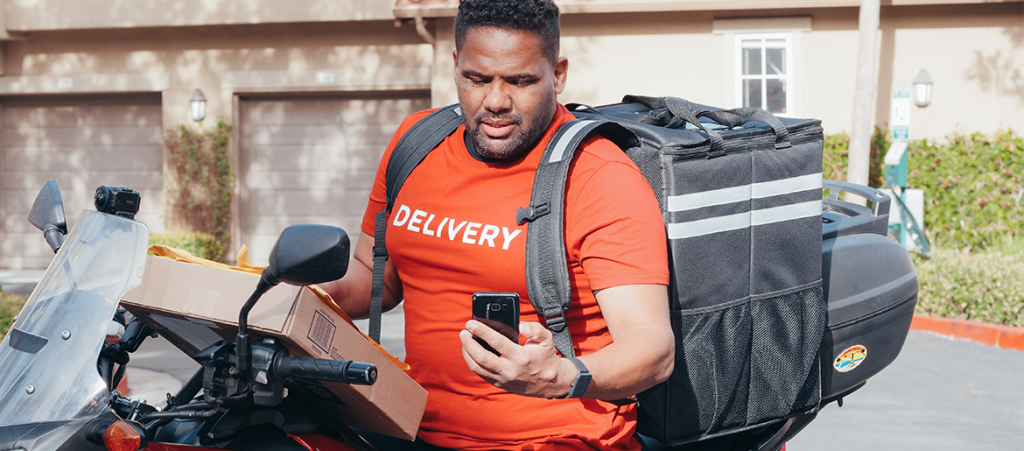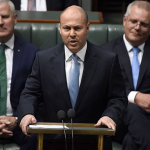
The government has begun its Senate inquiry into the ‘gig economy’, and its impact on job security (read this for a recap on the different types of inquiries in Australia). Established in December 2020, the inquiry will examine how the growth of the gig economy and increase in insecure contract work is affecting Australians, particularly in the wake of COVID-19.
The inquiry is very relevant to young Australians, who are much more likely to be gig workers as well as more vulnerable communities. To help you understand news coverage of the inquiry and the committee’s recommendations, these are the basics you need to know.
What does Australia’s gig economy look like?
First, a simple definition: the gig economy is a job market offering lots of temporary, flexible jobs on a contract or freelance basis. Unlike casual jobs, workers are not employees but treated as self-employed contractors operating under their own ABN. An UberEats delivery rider is not entitled to superannuation, like a casual employee working at their local Coles would be.
The gig economy is also different to fixed contract work, because there is no guaranteed minimum timeframe or payment. This is why jobs in the gig economy are classified as ‘insecure work’.
In Australia, the gig economy was estimated to be worth $6.3 billion in 2019, compared to $700 million in 2015. In fact, a lot of the post-COVID jobs growth has been attributed to an increase in gig roles rather than traditional employment.
A report from the Victorian government in 2020 looked at who was performing gig work facilitated by digital platforms like Uber, Airtasker and Freelancer. Compared to the general population, gig workers were more likely to be young (20% aged 18-34), male (twice as likely as female workers). Food delivery drivers more likely to speak a language other than English at home and have temporary residency status.
Australian gig workers were doing it to “earn extra money” – implying that it’s mostly a secondary or additional source of income as opposed to their ‘main’ job. The five most commonly used platforms in the Victorian report were: Airtasker, Uber, Freelancer, Uber Eats and Deliveroo.
Businesses offering sham contracts are leaving migrant staff “fighting for crumbs” at the bottom of the employment chain, an inquiry looking into Australia’s gig economy has been told. https://t.co/A3frljUr6J
— SBS News (@SBSNews) April 13, 2021
How many Australians does this affect?
As a relatively new phenomenon, ABS data doesn’t distinguish gig work from other types of contract work or secondary work. This makes it hard to get an accurate number, but some other ABS stats help paint a picture:
- As of Feb 2021, 8.5% of Australians were underemployed (don’t have as much paid work as they have availability for) – this is about the same as Feb 2020
- As of Aug 2020, 8.2% of Australian workers were independent contractors
- 24% of workers have pay that varies from one period to the next (this also includes some casual workers)
- 3% of workers were registered with a labour hire firm or employment agency, but only a third of were actually paid (i.e.: received work) from them
Despite directly affecting a relatively small portion of Australian workers, the long-term impact of insecure work and the gig economy is much broader. Without guaranteed superannuation contributions, gig economy workers are likely to be more reliant on pension payments in retirement and less able to support themselves in later life. Banks are also more likely to deny loans for those reliant on contract work, limiting the ability to enter the property market.
What will the Senate Inquiry do about this?
The goal of the Senate inquiry into the gig economy is to speak with experts, interest groups, different types of businesses and workers to get a real-world understanding of the issues. The committee is chaired by Tony Sheldon (Labor Senator and former Vice President of the Australian Council of Trade Unions) will deliver their final report by 30 November 2021. This report will make recommendations to the Government of what might help address the issues.
Some regulations are already being brought in. Last year, the ACCC allowed gig workers to engage in collective bargaining. Essentially, this means they can share information with each other to ensure a business is paying them all fairly, and to negotiate for benefits.
Related Posts
Major moments from the inquiry
- Menulog told the inquiry that they will trial having some delivery riders as employees. The trial program will be run in the Sydney CBD, and Menulog will negotiate with the relevant workers union on pay and conditions. They are also increasing their insurance cover for riders, and are establishing a pool of money to pay for sick or annual leave for riders.






